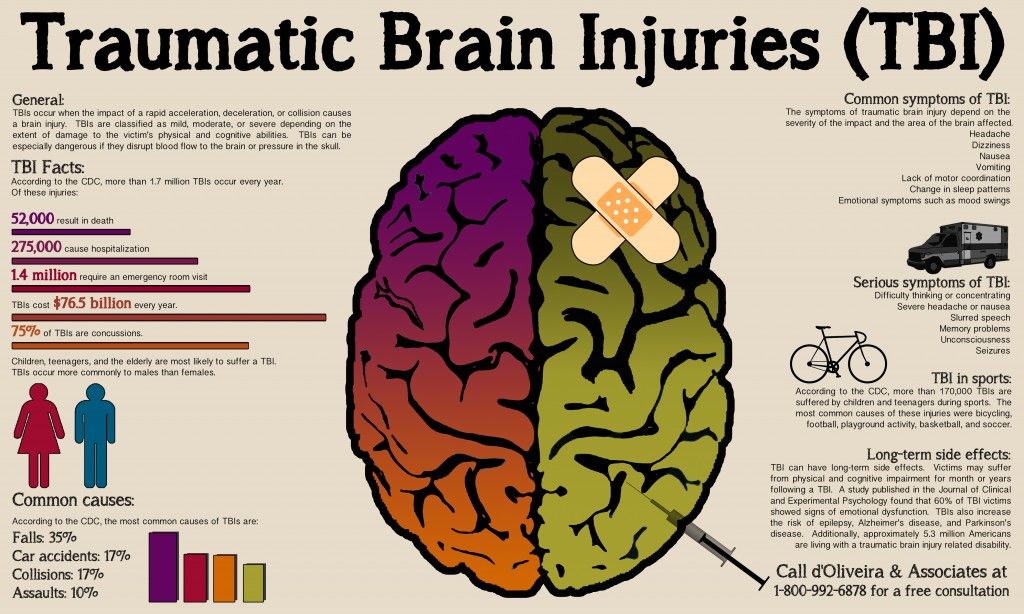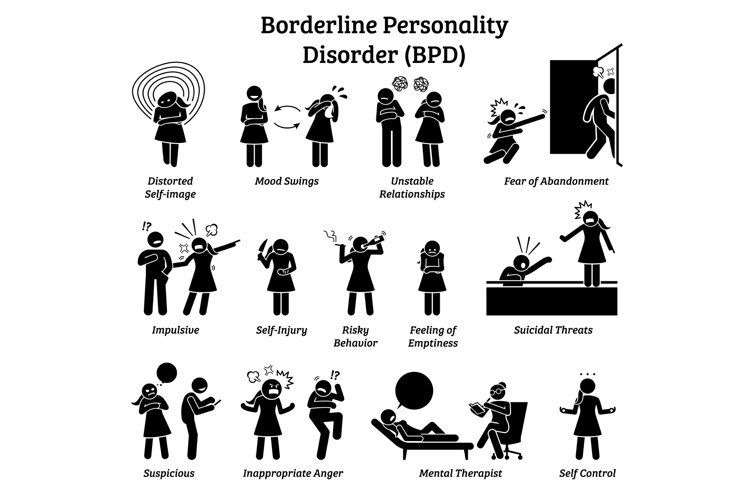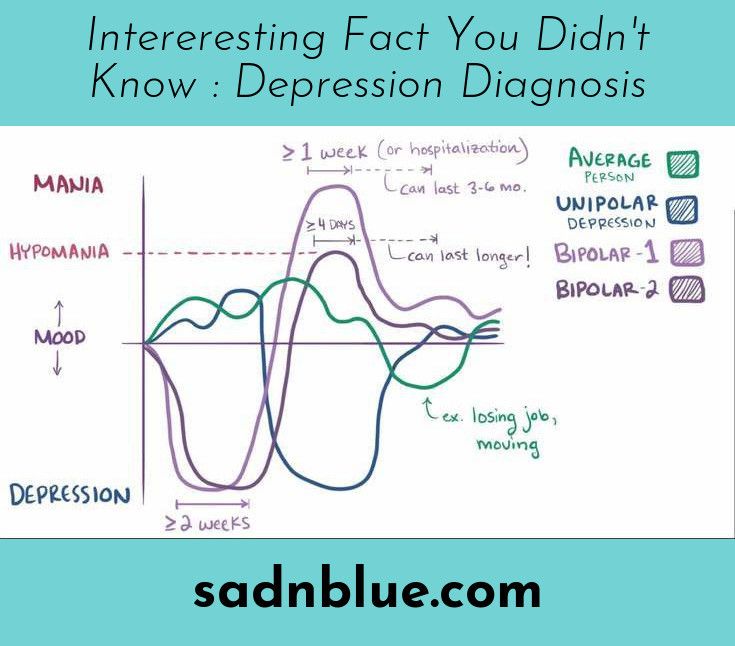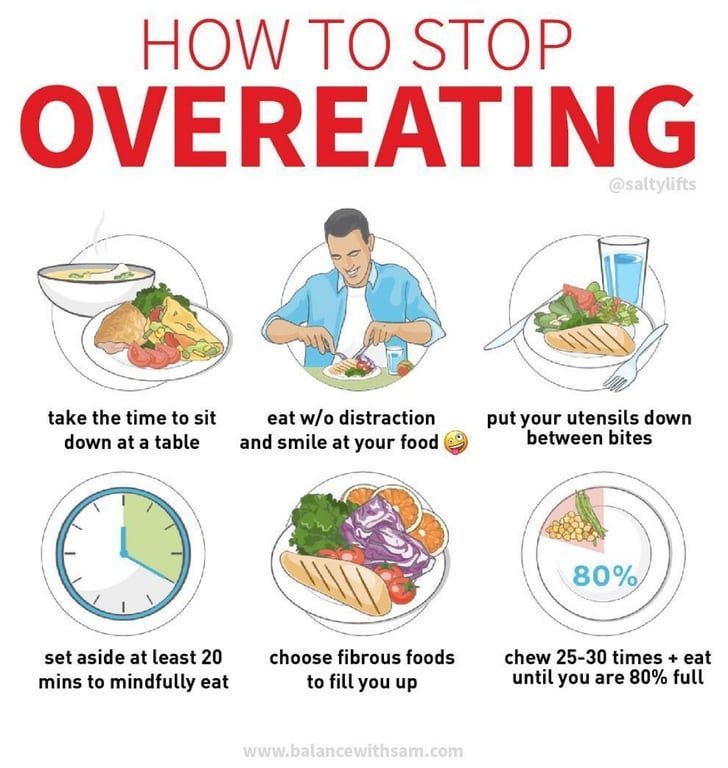Sluggish cognitive tempo natural treatment
Exploring Sluggish Cognitive Tempo: Challenges and Treatment
Sluggish cognitive tempo refers to when an individual lacks the motivation to socialize, learn new skills, or play. The symptoms are different for every person. For example, some people have trouble speaking or thinking quickly, while others might have difficulty maintaining attention.
Proper ADHD treatment can save you from sluggish cognitive tempo. Click the button below to book your appointment.
This article explores the condition often mistaken for ADHD, how it differs from the latter, and its diagnosis and treatment options.
Table of Contents
1. What Is Sluggish Cognitive Tempo?Sluggish cognitive tempo (SCT) is a condition characterized by slow mental and physical activity. It makes it hard to focus or follow conversations and may lead to coping mechanisms such as zoning out or daydreaming. SCT results from an overactive brain’s inability to distinguish between essential stimuli or insufficient energy allocation.
Even though sluggish cognitive tempo has been around for centuries, it is still not considered a clinical diagnosis or an individual disorder. Clinically, sluggish cognitive tempo (SCT) is suspected to be comorbid with attention deficit hyperactivity disorder (ADHD). But SCT patients have difficulty paying attention and maintaining focus—without hyperactive symptoms.
The History of Slow Cognitive Tempo
SCT was a common occurrence in populations in the early 1980s, characterized mainly by ‘low mental power’ and a tendency to daydream. The term SCT was first coined in 1984 by a clinical psychologist named Dr. Russell Barkley, who previously worked as a professor at the Medical University of South Carolina and Virginia Tech.
Barkley created the term SCT following an extensive investigation into attention problems that were not always associated with ADHD. He also proposed that the name “Attention-Deficit Disorder” be changed to “Attention-Deficit/ Concentration-Deficit Disorder.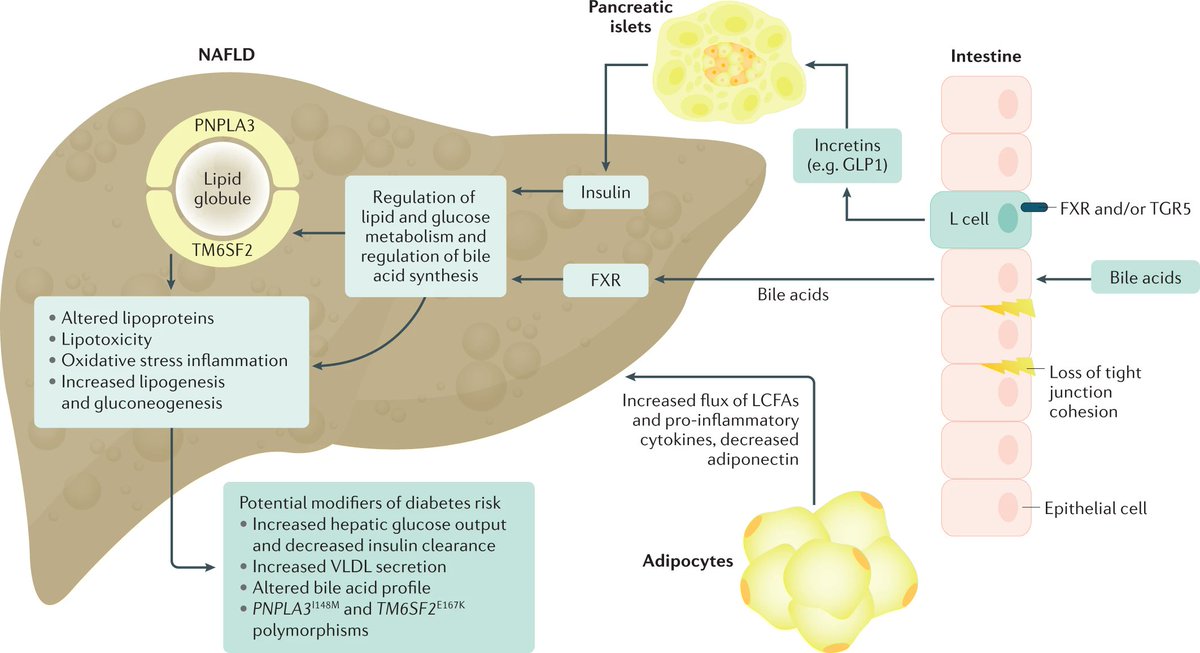 ”
”
It’s important to note that very little research has focused on studying SCT as a distinct disorder. There is evidence of references to aspects of SCT in old nursery rhymes. This shows that SCT symptoms and physical characteristics were also common in children at the time.
For example, in 1865, a physician named Heinrich Hoffman published a book of short stories called “Der Struwwelpeter.” It was filled with rhymes that heavily cited ADHD and SCT attributes. The first half of the book describes proper behavior for children. The second half taught lessons through allegories, and every story ended with a rhyme that teaches a lesson about a particular character’s misbehavior.
Causes of Sluggish Cognitive Tempo
In the 1980s, through contemporary research on SCT, the resemblances and differences between the two disorders became clear. The American Psychiatric Association made a milestone contribution to the study, introducing two diagnostic frameworks for ADD, including the H (hyperactivity) in the name, while the other excludes it.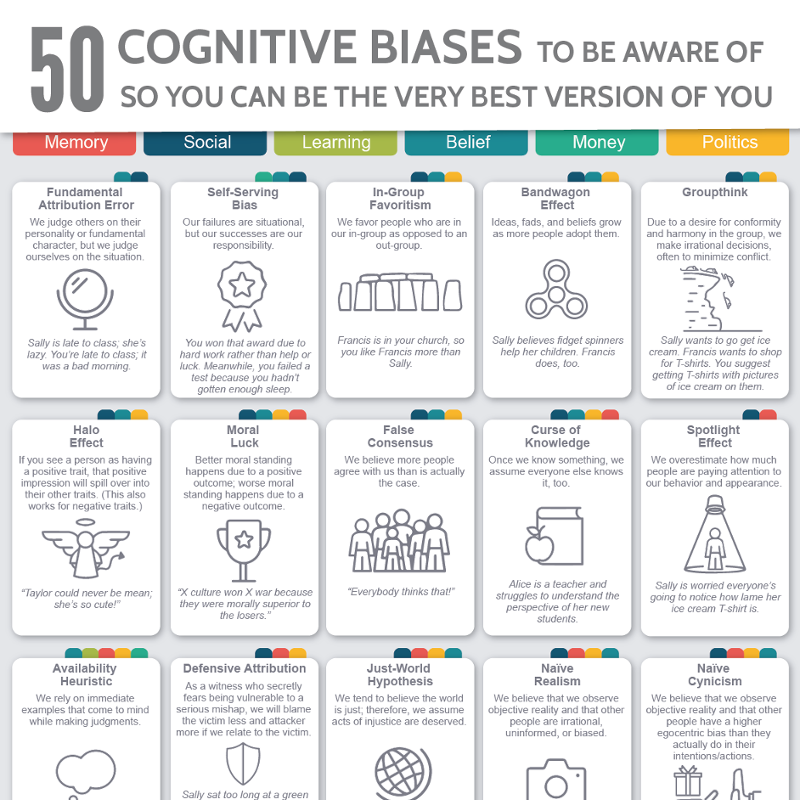
These diagnostic criteria gave professionals a precise method to diagnose certain disorders according to specific parameters that are important when choosing treatment options. Two similar-looking conditions were differentiated through numerous successful and failed approaches. But ADHD and SCT, however, are two separate conditions, so eventually, experts subtyped a condition known today as ADHD.
According to DSM-5 ADHD classification, there are three predominant subtypes: inattentive, hyperactive, and combined. The term Slow Cognitive Tempo was used in the 80s to describe how some children are not hyperactive but are still excessively slow or lazy (as in the case of ADHD), with the condition later termed ‘sluggish cognitive tempo.’ Each disease manifests itself in different ways, although some people with SCT have also had ADHD.
Association of SCT and ADHD
Traditionally, ADD referred to people who had issues focusing and were inactive but did not have problems with hyperactivity. But does ADHD lead to cognitive sluggishness? In some examples of the inattentive type of ADHD, only some individuals experience symptoms of lethargy or sluggishness.
But does ADHD lead to cognitive sluggishness? In some examples of the inattentive type of ADHD, only some individuals experience symptoms of lethargy or sluggishness.
Most experience hyperactive behavior (and increased states of arousal). The general public may think that many individuals with ADHD tend to feel sleepy or tired periodically; this is an inaccurate assessment. Eventually, it became clear that these terms cannot be used in heterogeneous contexts because they describe different conditions.
Get yourself treated for different types of ADHD. Click the banner below to book your appointment.
ADHD Appointment
Similarities between Sluggish Cognitive Tempo and ADHD
The symptoms of SCT and ADHD are very similar. They both cause someone to have trouble paying attention, controlling their behavior, and managing time. However, they are not the same because SCT is just a personality trait while ADHD is a disorder. The similarities between cognitive sluggishness and attention hyperactivity disorder are evident in the below symptoms:
| Symptoms | SCT | ADHD |
| A tendency to zone out/ daydream | YES | YES |
| Lethargy | YES | YES |
| Problem remembering things | YES | YES |
| Inability to stay alert in uninteresting situations | YES | YES |
| Slow information processing | YES | YES |
There is a 50 % chance that patients with slow cognitive tempo develop attention deficit hyperactivity disorder. The probability of patients with ADHD developing SCT is about 63 to 65%. Even though SCT shares many similarities with ADHD, some characteristics set these two conditions apart.
The probability of patients with ADHD developing SCT is about 63 to 65%. Even though SCT shares many similarities with ADHD, some characteristics set these two conditions apart.
Differences between Sluggish Cognitive Tempo and ADHD
| Symptoms | SCT | ADHD |
| Aggression | NO | YES |
| Poor conduct | NO | YES |
| Social impairments | YES | NO |
| Strange behavior | NO | YES |
| Anxious | YES | NO |
| Lack of guilt | NO | YES |
| Executive functioning problems | NO | YES |
| Socially withdrawn | YES | NO |
| Impaired physical performance | YES | NO |
| Inability to wait for your turns in a conversation | NO | YES |
In the past few years, studies have uncovered an active resurgence of SCT among those with ADHD. In addition to ADHD, other conditions also show strong associations with SCT, discovered by extensive research. A recent study proved that children with autism are much more likely than other children to show signs of SCT.
In addition to ADHD, other conditions also show strong associations with SCT, discovered by extensive research. A recent study proved that children with autism are much more likely than other children to show signs of SCT.
Experts in this field concluded that 49% of autistic children showed signs of inferior complex thinking skills. In contrast, 40% of inattentive type ADHD and 31% with combined-type ADHD showed similar symptoms. This study led the researchers to conclude that SCT is much more common among kids on the autism spectrum than those with ADHD.
Treatment Options for Sluggish Cognitive Tempo
2. Understanding the Symptoms of Sluggish Cognitive Tempo
Identifying the symptoms of sluggish cognitive tempo is not an easy job for any health practitioner especially considering its strong resemblance with the subtypes of ADHD. Although there is still no official list of symptoms developed for SCT, potential symptom markers can help identify SCT in individuals.
What Are the Symptoms of Sluggish Cognitive Tempo?
As defined in Reihman’s (2005) study, sluggish cognitive tempo syndrome is an “abnormality of basic or general cognition, affective behavior, and behavioral regulation that is considered to share symptoms with ADHD.” Other traits could be highlighted in Sluggish Cognitive Tempo syndrome as further analyzed by Russel A. Barkley and colleagues:
A-List of SCT symptoms
- looking/ feeling spacy
- Lethargic
- Feeling mentally foggy
- Staring a lot
- Slow-moving/ sluggish
- Easily confused
- Slow in completion of tasks
- Unable to process questions or explanations accurately
- Lost in thoughts
- Appearing drowsy/ sleepy
- Lack of initiative and effort fades
- Trouble staying awake/ alert
- Appearing apathetic/ withdrawn
- Daydreaming
- Underactive
Generally, SCT is often accompanied by ADHD-related symptoms such as hyperactivity, mood swings, impulsive behavior, difficulties concentrating, lack of impulse control, irritability, and poor performance in school. In addition to the mentioned characteristics, SCT is closely connected with behavioral problems and autism spectrum disorders. Hence it can be very challenging for specialists to form a precise differential diagnosis between them.
Get yourself evaluated for ADHD by mental health experts. Click the button below to book your appointment.
3. How Do I Know if I Have Sluggish Cognitive Tempo?
When people feel like they cannot stay on task or that their mind is distracted on an ongoing basis, this could suggest that they are dealing with some degree of sluggish cognitive tempo. But there are different degrees of SCT (slow cognitive tempo), and, what is more, it has symptoms that overlap with ADHD.
The Barkley 12 symptom manual for diagnosing SCT has been instrumental in determining the cause of many cases. No definitive diagnosis is issued when symptoms such as needing to stay busy and having restlessness occur in patients because these symptoms can also be attributed to patients who have both SCT and ADHD. Nonetheless, the manual is beneficial in helping treat case studies when SCT is suspected.
New Approaches to SCT Diagnosis
Becker, Leopold, and colleagues published a meta-analysis in 2016 after conducting a literature review. According to the study, thirteen symptoms can be used to diagnose and assess sluggish cognition. Children were the primary focus of this study.
Adult Diagnostic Criteria
Throughout his lifetime, Becker developed with Burns and Garner a symptom rating scale specific to adult SCT. Sixteen more signs were studied, which they thought could be helpful in the Adult Concentration Inventory (ACI). The ten robust markers were taken into account for the study to distinguish between SCT and ADHD.
Is There Any Sluggish Cognitive Tempo Test?
The Adult Concentration Inventory (ACI) is used in conjunction with these questionnaires to measure SCT:
- The Barkley Adult ADHD Rating Scale IV (BAARS-IV)
- The Beck Depression Inventory-Second Edition (BDI-II)
- The Beck Anxiety Inventory (BAI)
- The Revised Attention Network Test (ANT-R)
The term Sluggish cognitive tempo (SCT) may be a new phenomenon in the United States.
Still, like many things which happen globally, this phenomenon has been reported in other countries too. Interestingly enough, many said SCT symptoms have been present in people from different countries, such as Canada, Spain, Korea, Nepal, and Chile.
Overcome symptoms of SCT and ADHD. Click the banner below to book your appointment.
ADHD Appointment
4. Sluggish Cognitive Tempo Causes and Risk Factors
There is still a lot that needs to be studied further to understand the risk factors for slow cognitive tempo, and so far, that data has not been available. The theorized causes of SCT include:
Brain Structure and Chemistry
Toward the end of the last century, it was believed that sluggish cognitive tempo was associated with reduced activity in the left superior parietal lobe. The reduced activity might be one cause of SCT.
Age and Gender
The results of several studies published to date indicate that slow cognitive tempo is independent of age, ethnicity, or gender. Researchers found that males had slightly more symptoms in childhood than females, but the symptom prevalence in adulthood was not sex-specific.
Acute Lymphoblastic Leukemia (ALL) and SCT
Acute lymphoblastic leukemia is a cancer of the white blood cells. It is not one specific thing, but a group of cancers that include myelomas, leukemias, and lymphomas in children and adults.
All of these cancers share several things in common. However, there is a broad distinction between the two, with lymphoma as a different kind of cancer in white blood cells. ALL and the other types are the common type of lymphoma that affects all major types of white blood cells.
According to research in this regard, individuals who survive acute lymphoblastic leukemia are likely to experience SCT at high rates. According to the study, a higher dose of radiation therapy is responsible for the close correlation of SCT with ALL. Radiation exposure causes neurocognitive impairments such as slow processing speed, difficulty concentrating, and impairments in motor skills in these individuals.
Common Symptoms of Sluggish Cognitive Tempo
Parental Factors in Developing SCT
SCT may have some parental influences. Barkley conducted a national survey in 2013 which revealed that the following parental factors are linked to an increased risk of SCT:
- Lower parental education
- Lower annual household income
- Parents with a disability
Alcohol Poisoning in Prenatal Life
According to research, a fetus exposed to alcohol during intrauterine life can be more likely to develop the sluggish cognitive function. Alcohol affects unborn babies in significant ways, including causing problems with impairments in motor functions, memory deficits, speech problems, low intelligence levels, difficulty following instructions, visual-spatial trouble, and others.
ADHD and SCT
As previously discussed, there is a strong association between ADHD and SCT. According to a review study, SCT and ADHD patients suffer more severely than patients with ADHD. The neuropsychological characteristics of sufferers caught in the SCT and ADHD trap include problems in controlling attention and impulses, cognitive challenges such as planning, lack of knowing emotions and their regulation, over-reactivity to the environment, sleep problems such as abnormally long sleep latency or parasomnia/ hypersomnia during childhood or adolescence.
SCT and Neuropsychological Deficits
While some mental illnesses may lead to or may develop neuropsychological problems, SCT does not cause these issues. The development of SCT is not associated with a low intelligence quotient or low IQ.
Medications Used for Sluggish Cognitive Tempo
5. How Does Sluggish Cognitive Tempo Affect Individuals?
There have been several complications linked to the SCT in children and adults, including the following:
Sleep Problems
Researchers have explored sleep disturbances in relation to sluggish cognitive tempo as its possible complication. Study results show that behavioral symptoms such as sleep disturbance contribute to SCT and ADHD. Scientists collected parent reports and analyzed them to create an understanding of the sleep disorders-SCT relationship. The study also considered the children’s age, medication, mental health, and physical health status.
Findings from research revealed that children with difficulty waking up tend to be sluggish and lethargic.
Suicidal Behaviors
It appears that sluggish cognition is uniquely associated with suicidal behavior. 1704 college students were involved in a planned research study. Suicidal behaviors and mental health status were taken into consideration in all the measures.
These were the results:
- A total of 4% of students reported having previously considered suicide.
- 2.2% said they planned to commit suicide someday.
- 7.5% have thought about and attempted suicide several times over the last year.
- In 41.4% of cases, individuals never discussed their intention to attempt suicide with anyone.
About one-quarter of the participants had suicidal behavior and SCT. In most participants, suicidal behaviors were reported, establishing the first empirical link between SCT and suicidal behavior.
Slow Processing Speed
It is not tricky for SCT patients to sort and analyze information. A study of college students’ test-taking abilities and reading abilities supports these findings. The study used additional tests, including:
- Processing speed
- Reading fluency
- Reading comprehension
The study results indicated that symptoms of SCT pose the greatest difficulties in time-related tasks and adversely affect processing speed. A comprehensive study is needed to determine whether SCT symptoms are related to low academic performance.
Manage your SCT when you have gotten ADHD. Click the banner below to book your appointment.
ADHD Appointment
Mind-Wandering
Sluggish cognitive performance is often accompanied by confusion and wandering thoughts.
What Is Mind-Wandering?
Mind-wandering is when people drift off into their thoughts or become disconnected from external stimuli and fixate on their internal thoughts instead. They often do not realize that these thoughts are unconditioned. Mind-wandering is a really big problem for a lot of people.
It can cause you to stress out because it makes it very difficult to focus on anything important. In fact, the more you try to get your mind off of something, the more difficult it can be to get rid of it from your thoughts! Mind-wandering hinders one’s working memory and inhibits one’s ability to focus on goals and many other life-related issues, ideas, concerns, and objects.
Mind-Wandering Vs. Daydreaming
Daydreaming and mind-wandering may appear to be synonymous, but they are two very different mental states. The main difference is that daydreaming happens when you are conscious of your thoughts, whereas mind-wandering is an unconscious detachment from reality. Daydreams are often positive vibes, whereas mind-wandering tends to lead on a more negative path.
Also, on daydreaming, there are visuals, imaginations, and sometimes hallucinations. You can daydream in a conscious state, still connected to the present world.
Lack of Self-Esteem
People who have a slow cognitive tempo tend to get stressed out easily. According to a study with published findings in the Journal of Attention Disorders, their tasks take them longer to complete, negatively affecting their self-esteem.
Relationship Difficulties
Mind-wandering disorders cause patients to spend most of their time daydreaming, being distracted, and frustrated. You might find that your relationships with others suffer when you cannot take responsibility, fulfill your obligations, and communicate effectively. Thus, the symptoms of SCT often lead individuals to feel lonely.
ADHD at Work can lead you to uncomfortable feelings. Click the button below to book your appointment.
6. How Do You Treat Sluggish Cognitive Tempo?
Because sluggish cognitive tempo isn’t a clinical diagnosis yet, there aren’t any specific treatment protocols developed to treat it. Because of this, it’s hard to determine whether or not a stimulant medication is the best choice for treating SCT in children and teenagers. In regards to SCT and symptoms that overlap with ADHD, stress, and anxiety, the following options are considered:
(Note: It is vital to obtain instructions and prescriptions from your certified health practitioner before taking a medication or treatment option. Please inform your doctor if you experience any side effects or unusual symptoms.)
Stimulant Medication
In addition to treating the SCT symptoms of inattentiveness, stimulants such as Ritalin may also improve focus and concentration.
Non-Stimulant Medication
Treatment of SCT symptoms may also involve non-stimulant medications like Axotomine and norepinephrine reuptake inhibitors. Common non-stimulant medications include:
- Atomoxetine (Strattera)
- Guanfacine
- Clonidine
Several studies have shown that Axotomine is effective in controlling symptoms of SCT. But some researchers deny methylphenidate’s effectiveness for treating the symptoms of daydreaming in individuals in some studies.
Sluggish Cognitive Tempo Supplements
Natural supplements can be helpful in different ways for SCT as they are for ADHD. One of the most effective natural supplements is L-tyrosine. For example, this supplement is beneficial when finding brain stimulation—other valuable supplements include:
Omega-Fatty Acids: They are found plenty in fish like sardines. The fatty acids are mainly responsible for the improvement of cognitive and behavioral skills.
Zinc: Zinc deficiency is believed to lead to inattention. You can prevent SCT side effects by fulfilling your zinc body requirements.
Magnesium: Magnesium soothes the brain by promoting relaxation when present in the body at the right amount.
Therapies for Sluggish Cognitive Tempo
Selective Serotonin Reuptake Inhibitors
Anecdotally, individuals with SCT and other conditions like social anxiety and PTSD (post-traumatic stress disorder) tend to self-diagnose and self-treat by using SSRIs (selective serotonin reuptake inhibitors). However, some health care providers believe that current research regarding the efficacies of SSRIs for individuals exhibiting cognitive slowness is inconclusive.
Therapy for SCT
You can look into psychotherapy as an option to treat symptoms of SCT. There are many different types of psychotherapy but find one that focuses on treatment via behavioral therapies or operant procedures. Some important considerations are duration, adjuncts, efficacy, culture sensitivity, accessibility/ availability & economic factors. Among the best therapies to consider include:
- Behavior therapy
- Cognitive-behavioral therapy
- Social skills training
- Support groups
In light of your symptoms and prognosis, your doctor will recommend the best option for you.
Lifestyle Changes
People with SCT should eat right, get ample sleep each night, and moderately work out. A diet plan that avoids high-fat foods is of the utmost importance here. Also, being more aware of your sleeping habits can be highly effective in helping relieve symptoms.
Always remember to go to bed around the same time every evening, so you get the rest you need at night. Getting an adequate amount of daily exercise – every day – can also help improve quality-of-life for people with SCT.
Eye-Feedback Training
Eye-feedback is a task-based study that involves aspects of the Unity 3-D game. Researchers used this technique to develop a training program with feedback from an eye tracker about where participants were looking. The experiment would show people with SCT-specific cues to direct their attention versus other cues meant to distract them. The results revealed that the eye-feedback technique was successful in engaging and disengaging attention.
Medicinal ADHD treatment can help you to stay focused. Click the button below to book your appointment.
Sluggish Cognitive Tempo Future Direction
Sluggish cognitive tempo is a condition that has been recognized and known in the past three decades and has been compared to attention deficit hyperactivity disorder in terms of symptoms and treatment. People with SCT often deal with a variety of challenges because of its adverse symptoms.
Treatments range from individual approaches, such as supplements that boost serotonin levels, to cooperative efforts with several professional support systems, such as tutors or therapists. In the future, the condition may get a new name, a new classification as a disorder, and new diagnostic and therapeutic prescription frameworks.
Contact us at Mango Clinic for ADHD treatment or click the banner below to book your appointment.
ADHD Appointment
Drug May Curb 'Sluggish' Thinking in Some Adults With ADHD
WEDNESDAY, June 30, 2021 (HealthDay News) -- ADHD patients often complain of feeling spacey, slow-moving and lethargic -- symptoms that don't on their face seem to jibe with hyperactivity.
That's because these symptoms come from what appears to be a separate psychiatric disorder that often coincides with ADHD, called sluggish cognitive tempo (SCT).
Now, a new clinical trial has shown that a stimulant drug long used to treat ADHD might help people who also may have SCT.
Vyvanse (lisdexamfetamine) reduced symptoms of sluggish cognitive tempo by 30% in a small group of 38 adults with ADHD, researchers reported online June 29 in the Journal of Clinical Psychiatry. The drug also lowered ADHD symptoms by more than 40%.
The trial results, while not conclusive, show promise in the use of Vyvanse to treat sluggish cognitive tempo, said Dr. Scott Krakower, an attending psychiatrist with Zucker Hillside Hospital in Glen Oaks, N.Y.
"Clinically, we've been using this for years to treat this symptom," Krakower said, adding that sluggish cognitive tempo "is one of the bigger patient complaints, to be honest with you, for ADHD that I get."
About half of people with ADHD also have symptoms related to sluggish cognitive tempo, researchers said in background notes.
However, SCT appears to be a separate disorder that can affect people who don't have ADHD, said Dr. David Goodman, director of the Adult Attention Deficit Disorder Center of Maryland.
"They're often daydreaming and they wander off in their own head. They're slow in processing information. They often appear to be spacey and confused. They have a low energy to them," Goodman said. "As time has evolved, this constellation of symptoms, although present in ADHD, is not specific to ADHD."
SCT is a relatively new psychiatric concept, and has not yet become its own diagnosable condition, Goodman added.
In this clinical trial, more than three dozen people with ADHD and SCT were treated for four weeks with either Vyvanse or a placebo. The drug's maker, Shire/Takeda Pharmaceuticals, paid for the study.
Vyvanse has been approved by the U.S. Food and Drug Administration for treatment of ADHD since 2007, and is currently approved to treat the disorder in children, teenagers and adults. It's an amphetamine similar to Adderall, but works differently in the body to treat ADHD symptoms, Goodman said.
"Vyvanse is very well established in the ADHD arena, across the life span," Goodman said.
The drug improved both ADHD and SCT symptoms among the patients, compared to those who received the placebo, according to the study researchers from NYU's Grossman School of Medicine and the Icahn School of Medicine at Mount Sinai, both in New York City. Dr. Lenard Adler, who directs the adult ADHD program at NYU Langone Health, was the lead investigator on the study.
Further, his team showed that only about a quarter of overall improvements in sluggish cognitive tempo -- feelings of boredom, trouble staying alert, signs of confusion -- were due to improvements in ADHD symptoms.
This indicates that sluggish cognitive tempo really is its own separate disorder, with only some overlap with ADHD, the researchers concluded.
That really is one of the major takeaways of the study, Goodman said, adding to the growing pile of evidence that SCD is its own condition apart from ADHD.
"Slow cognitive tempo, although present in ADHD, is a constellation of symptoms that may also occur even if you don't have ADHD by diagnostic criteria," Goodman said.
However, the clinical trial wasn't perfect. Krakower noted that it was a very small study for such a widely used drug, so much so that the improvements seen in patients did not achieve statistical significance.
"I wouldn't say it was the best data," he said. "I'd like to see more data on this. This is a smaller study with moderate results."
Krakower would like to see a larger follow-up trial involving more patients, perhaps with a stronger focus on SCT.
In the meantime, this trial shows that psychiatrists might want to think "slow cognitive tempo is something I need to consider when I'm looking at ADHD individuals," Goodman said.
More information
The Edge Foundation has more about sluggish cognitive tempo.
SOURCES: Scott Krakower, DO, attending psychiatrist, Zucker Hillside Hospital, Glen Oaks, N.Y.; David Goodman, MD, director, Adult Attention Deficit Disorder Center of Maryland; Journal of Clinical Psychiatry, June 29, 2021, online
causes and associated disorders
Slow cognitive pace: causes and associated disordersclinical psychology
January 18, 2023
Although slow cognitive pace (SCP) was previously thought to be a subtype of attention deficit hyperactivity disorder (ADHD) with predominant symptoms of inattention, it is now known to be a differentiated syndrome that manifests itself in other psychopathological changes.
In this article, we describe the clinical characteristics, causes of slow cognitive pace and its association with other disorders . Research into this set of symptoms is in its infancy, but progress has been made at a rapid pace over several years.
- Maybe you're interested: "The 16 Most Common Mental Disorders"
What is slow cognitive pace?
The concept of "slow cognitive pace" refers to a cognitive-emotional style, which is characterized mainly by the constant presence of the state confusion, loss of vision, daydreaming, lack of motivation and slowness or laziness. If these manifestations are understood as symptoms, we can consider LCL as a syndrome.
In addition to these five cardinal features, people with a slow cognitive pace can usually also find the following:
- Low accuracy and speed of information processing.
- Frequent feeling of fatigue or chronic fatigue.
- Relatively low level of energy and activity.
- Sleepiness during the day.
- Difficulty maintaining vigilance or wakefulness in small stimulating situations.
- Withdrawals, declining interest and participation in events.
- Difficulties in turning thoughts into words.
- Loss of thought, blocks, forgetting when talking.
Slow cognitive pace was originally thought to be a subtype of attention deficit hyperactivity disorder in which the symptoms of inattention predominated. The progress of scientific research has shown that this is actually an independent clinical category, although there is no consensus as to whether it is a disorder or not.
In this sense, the clinical characteristics of slow cognitive pace appear in the context of various psychological and psychiatric disorders, including major depression, generalized anxiety, intellectual functional diversity, or various learning disorders, in addition to ADHD.
- Related article: "Attention Deficit or Selective Attention in ADHD"
Causes of this syndrome
The causes of slow cognitive pace are currently not well known. It is believed, however, that neural networks associated with the attention of the back of the brain in the parietal lobes are more associated with this syndrome than the frontal lobes, as is the case with ADHD.
On the other hand, exposure to large amounts of alcohol during fetal development has been found to contribute to these neurocognitive traits.
Slow cognitive pace seems to have a biological basis similar to Attention Deficit Hyperactivity Disorder . However, the heritability of ADHD is higher in the subtype in which hyperactivity symptoms predominate.
In contrast, cases of ADHD associated with the presence of a slow cognitive pace have a lower genetic inheritance weight. It has been suggested that this style of thinking and emotion results from changes in environmental influences caused by the very presence of inattentive symptoms.
Relationships with other disorders
There is currently an unresolved debate about the clinical nature of slow cognitive pace. Its association with other psychological disorders may shed some light in this regard.
1. Attention Deficit Hyperactivity Disorder
Studies show that 30 to 50% of children diagnosed with ADHD show a characteristic slow cognitive pace syndrome. The clinical similarity between this pattern and inattentive-dominated ADHD is significant, but both constructs differ in some neurological and cognitive characteristics.
For many experts, the increased interest in slow cognitive pace provides an opportunity to question the very diagnosis of ADHD, which covers very diverse presentations and has become restrictive in the area of inattention in the transition from DSM-III to DSM. -IV, but gets explanatory power if TCL is included in the criteria.
2. Major depression
A clear association was found between slow cognitive pace and the presence of internalizing symptoms especially those that are characteristic of mood and anxiety disorders.
Although these relationships are of moderate intensity, they are somewhat stronger in depression than in anxiety. In addition, some authors argue that slow cognitive pace is more related to internalization than to ADHD.
3. Anxiety disorders
Regarding the category of anxiety disorders, comorbidities were found between slow cognitive time and changes as social phobia, obsessive thoughts and especially generalized anxiety disorder, which is closely related to depression from a biological point of view.
Signs of inattention mediate the relationship between anxiety disorders and slow cognitive pace: Difficulty attending TCL is increased by anxiety, which in itself entails changes in this psychological function.
4. Behavioral disorders
Children and adolescents with attention deficit hyperactivity disorder are more likely to develop behavioral problems such as conduct disorder, negativity disorder or substance abuse. However, in cases that occur at a slow cognitive pace, this association is reduced; So TCL acts as protection factor .
5. Learning difficulties
Slow cognitive pace interferes with learning through the appearance of Deficiencies in self-organization and problem solving as well as in other executive functions. The severity of the difficulties associated with this depends on the intensity of the symptoms in each case.
References:
- Camprodon, E., Dunyo, L., Batlle, S., Estrada, H., Asenya, M., Brown, M., Torrubia, R., Pujals, E., Martin, L. M. & Ribas-Fito, N. (2013). Slow Cognitive Time: A Construct Revisited. Journal of Psychopathology and Clinical Psychology, 18(2): 151-168.
- Müller A. K., Tucha L., Kurts J., Groen T., Lange K. W. and Tucha O. (2014). Sluggish cognitive pace and its neurocognitive, social, and emotional correlates: a systematic review of the current literature. Journal of Molecular Psychiatry, 2:5.
THE CHOICE IS OURS 2016 | FULL FILM | The official version of the Venus Project (January 2023).
Ryazan State Medical University named after Academician I.P. Pavlov
Ryazan State Medical University named after academician I.P. Pavlov - official siteAdditional professional education (4912) 97-18-37
Additional professional education (4912) 97-18-37
Additional professional education (4912) 97-18-37
Additional professional education (4912) 97-18- 37
Additional professional education (4912) 97-18-37
Additional professional education (4912) 97-18-37
Additional professional education (4912) 97-18-37
Additional professional education (4912) 97-18-37
Additional professional education education (4912) 97-18-37
Additional professional education (4912) 97-18-37
University in rankings
University in rankings
University in rankings
University in rankings
University in the ratings of
University in the ratings of
University in the ratings of
University in the ratings of
University
WetLab Training OR
WetLab Training OR
WetLab 9 Training OR0005
Training operating room WETLAB
Training operating room Wetlab
Curricula Wetlab
Science News in RyazgMU
Science News
News of Science in RyazMU
Science News 9000 9000 RyazGMU
Science news in RyazGMU
Science news in RyazGMU
Science news in RyazGMU
Science news in RyazGMU
02/07/2023
TO THE ATTENTION OF THE PARTICIPANTS OF THE FINAL STAGE OF THE OPEN SCHOOL OLYMPIAD IN BIOLOGY
02/09/2023 WE INVITE STUDENTS TO PARTICIPATE IN PHYSICS OLYMPIAD The Department of Mathematics, Physics and Medical Informatics announces the holding of the subject intra-university Olympiad "Physics" among 1st year students of medical, pediatric, dental, preventive and pharmaceutical faculties.News
09/23/2022
News FDPO RyazGMU
09/27/2022 Russian as a foreign language (speech practice course) 09/23/2022 Russian as a non-native language 21.FDPO
02.02.2023
